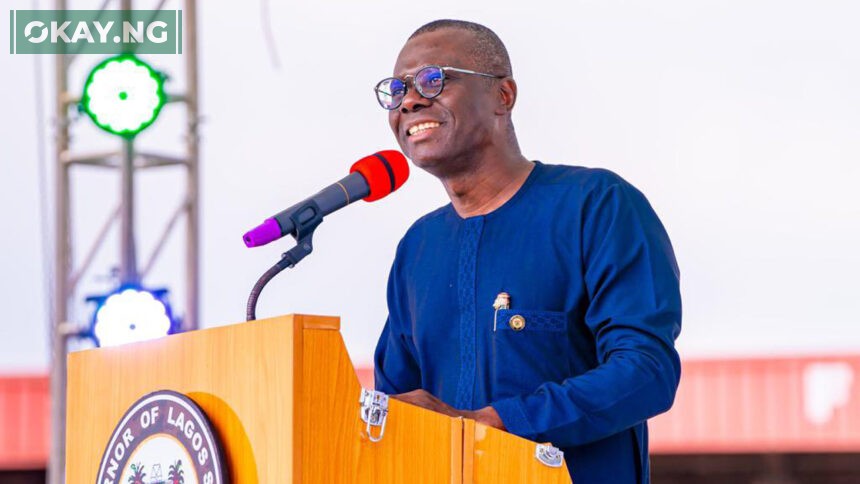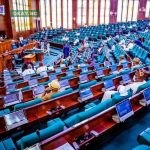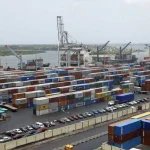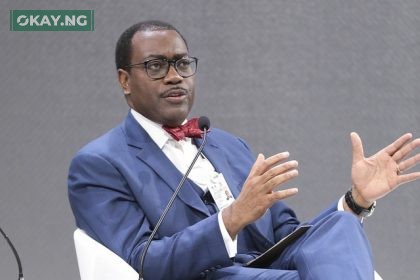Governor Babajide Sanwo-Olu announced a 30% fare reduction for the Lagos Rail Mass Transit (LRMT) Red Line and opened the recently built Abule Egba Bus Terminal in a major move to alleviate the financial burden on commuters and improve the state’s transportation infrastructure. These changes reflect a determined attempt to increase Lagosians’ access to and affordability of public transit.
“We have looked at the numbers and have therefore decided to have a 30% reduction on the fare paid on the Red Line. This means that a trip from Agbado to Oyingbo will now cost N1,000,” Governor Sanwo-Olu declared during the commissioning of the Abule Egba Bus Terminal. This reduction, effective immediately, lowers the fare from N1,500 to N1,000, a welcome relief for commuters grappling with economic challenges.
The governor’s announcement, as reported in a press statement by Kolawole Ojelabi, Head of Corporate Communications at the Lagos Metropolitan Area Transport Authority (LAMATA), underscores the government’s commitment to promoting wider use of the Red Line. The rail service, which commenced operations in September 2024 and has since expanded its daily trips due to growing demand, is now even more accessible. This fare reduction is anticipated to further boost ridership and streamline movement for thousands of Lagos residents who depend on the rail service.
Beyond the immediate financial relief, the fare reduction also carries a broader economic implication. By lowering transportation costs, the government is indirectly increasing disposable income for Lagosians, a move that could stimulate local economic activity. From a human angle, this translates to families having more resources for essential needs like food, education, and healthcare. It reflects a government that is not just building infrastructure but also considering the daily struggles of its citizens.
Read Also: Lagos BRT Fares Surge 18%, Stirring Commuters’ Anxiety
Simultaneously, the commissioning of the Abule Egba Bus Terminal marks another milestone in Lagos’s ongoing efforts to modernise its transportation network. Strategically located along the bustling Oshodi-Abule Egba Expressway, the terminal is poised to become a key transport hub, seamlessly integrating with the existing Bus Rapid Transit (BRT) network.
“This Abule Egba Bus Terminal is a testament to our administration’s commitment to providing efficient and accessible public transportation for all Lagosians,” Governor Sanwo-Olu affirmed. The terminal’s design focuses on enhancing connectivity and offering a more organised and comfortable transit experience, a stark contrast to the often chaotic nature of public transportation in mega-cities like Lagos.
The new terminal is not an isolated project. It forms part of a larger, interconnected plan that includes the ongoing construction of the Quality Bus Corridor (QBC) project and the planned expansion of the BRT system. Governor Sanwo-Olu emphasised the terminal’s crucial role in improving commuter services, particularly with the QBC project and the planned BRT expansion, highlighting the government’s vision for a comprehensive and integrated transport system. The governor also noted that this initiative is part of a broader strategy to extend Lagos’s transport infrastructure to Sango and other crucial areas, signalling a long-term commitment to improving mobility across the state.
The commissioning event saw the presence of several key state officials, including Deputy Governor Dr. Kadri Obafemi Hamzat, Secretary to the State Government Barr. Bimbola Salu-Hundeyin, Head of Service Mr. Olabode Agoro, and Permanent Secretary of the Lagos Ministry of Transportation Mr. Olawole Musa, representing the Commissioner for Transportation, Mr. Oluwaseun Osiyemi. Also in attendance were local government chairpersons, underscoring the collaborative effort between different levels of government in driving these infrastructural advancements.
These concurrent developments – the fare reduction and the new bus terminal — represent a significant step forward in addressing the transportation challenges faced by Lagos residents. They offer a tangible demonstration of the government’s commitment to improving the quality of life for its citizens by providing more affordable, efficient, and accessible public transportation options.












